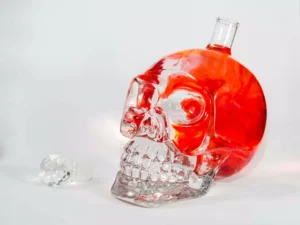
Make sure to tell your doctor about all the medications you’re taking. Taking antiplatelets, anticoagulants, and aspirin together can increase your risk of bleeding, however, depending on your medical conditions you may need to take a combination of these medications. Alcohol and blood thinners interact in different ways that will vary for each individual. This makes it hard to predict exactly what will happen, but it increases the risk of either bleeding or clot-related problems. Alcohol can also increase the risk of injuries, which can bleed more easily while someone is on blood thinners.
Can you take vitamin D with blood thinners?
- People vary in their response to alcohol due to factors such as genetics, body weight, metabolism, and overall health.
- They will consider the state of your health and the medications you take.
- Factors like facility type, level of care, and amenities affect pricing, and financial assistance options like scholarships, sliding scale fees, and payment plans can help manage expenses.
- No matter what type of surgery you’re having, there’s some measure of risk.
These proteins are activated through a series of steps that, ultimately, activates fibrin. Fibrin is a protein formed during the clotting process that helps stop blood flow. Blood clotting is an extremely important function of the body that prevents bleeding.
Risks and Benefits
However, it is always advisable to consult a doctor or pharmacist before drinking alcohol with any new medication. One of the oldest blood thinners still in widespread use is warfarin (Coumadin). Of all the blood thinners available today, warfarin is most strongly affected by excessive alcohol consumption. However, moderate consumption doesn’t significantly affect the metabolism of warfarin.
Can you drink alcohol instead of taking a blood thinner?
Therefore, as in animal studies, the effects of ethanol on endothelial function in humans likely depend on the dose and duration of ethanol consumption. To better understand the effects of alcohol on blood clotting, it’s important to grasp how the clotting process works. Alcohol consumption can also impair the body’s natural healing mechanisms. When injured, the body relies on a complex process involving blood clotting and tissue regeneration to heal wounds. Excessive alcohol consumption can interfere with this process, slowing down healing and prolonging recovery time. Furthermore, alcohol can also interfere with the production and activity of clotting factors, which are essential for the blood clotting process.

Blood thinners and alcohol: can they be used together?
Taking caffeine along with medications that also slow blood clotting might increase the risk of bruising and bleeding. About 30 grams of alcohol — equating to two standard drinks — can lower fibrinogen levels, which can affect blood clotting. Several studies have been published that link heart health with red wine, as Mayo Clinic reports that a daily glass of red wine may have certain health benefits. Blood clotting is essential to prevent blood loss when someone is injured or wounded. For example, if a blood clot forms and limits the flow of blood in the arteries, doctors call this thrombosis. If you do drink alcohol while on blood thinners, do so in moderation.
How does alcohol consumption affect my high cholesterol or risk of other cardiovascular issues?
The review concludes by suggesting several promising avenues for future research related to alcohol use and CV disease. Excessive alcohol consumption can lead to an increased risk of bleeding. Alcohol affects the body’s ability to form blood clots, which are essential for stopping bleeding when an injury occurs. When blood clotting is impaired, even minor cuts or injuries can result in prolonged bleeding. It’s important to note that alcohol’s impact on blood clotting can vary from person to person.
- Various foods, herbs, and medications can interfere with blood thinners.
- For these reasons, drinking alcohol while taking blood thinners can make it hard for your blood to clot, which can increase your risk of bleeding heavily.
- Reach out to one of our understanding team members today to learn more about how we can help you achieve a healthier, alcohol-free life in recovery.
- However, it’s important to note that different types of alcoholic beverages can have different effects on your overall health.
- Research suggests that moderate alcohol consumption may have some positive effects on cardiovascular health.
Why Are Blood Thinners Prescribed?

NIAAA defines binge drinking as a pattern of drinking alcohol that brings the blood alcohol concentration to 0.08 percent or above. A typical adult consuming the defined number of standard drinks for binge drinking would reach a blood alcohol concentration of 0.08 in about 2 hours (NIAAA 2015b). You should limit alcohol consumption while taking anticoagulant blood thinners such as Coumadin (warfarin), as alcohol can potentially increase the risk of bleeding with this prescribed drug. Moderate alcohol use is generally safe while taking most blood thinners.
Treatment for alcohol use disorder
A doctor will determine the appropriate length of time based on an individual basis. Blood thinners are crucial in preventing and treating various cardiovascular and circulatory conditions. There are two main types of medications — anticoagulants and antiplatelets — a doctor may recommend depending on blood thinners and alcohol the reason for needing them. Anticoagulants, also described as blood thinners, are a group of drugs that reduce the ability of blood to clot. Alcohol intake is the main factor determining how long the effects last. In people who drink moderately, the effect of alcohol on platelets is short-lived.
Alcohol Interactions with Anticoagulants and Antiplatelet Medications
If a person drinks alcohol before surgery, they may take longer to stop bleeding. Blood thinners are important medications used for treating and preventing blood clots. The benefit of taking blood-thinning medications must always be weighed against their risk of serious bleeding.

Talking to Your Healthcare Provider

If you’re a regular drinker, you may need to get your medication levels checked more often. If it’s busy working on the alcohol instead of your blood thinner, the level of the drug in your blood will go up and raise your bleeding risk. If you or someone you know is struggling with alcohol addiction, reaching out to healthcare professionals, support groups, or addiction treatment centers can provide the necessary guidance and support. They can help develop personalized treatment plans, which may include detoxification, therapy, counseling, and support to overcome alcohol addiction. They do not pass readily through cell membranes, and they are major components of very-low-density lipoproteins (VLDLs), which are converted in the blood to LDLs.
